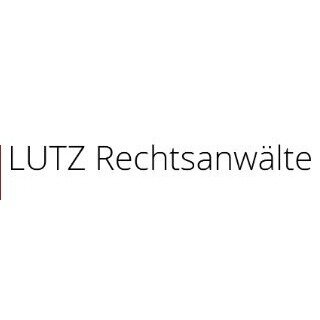Best Tax Increment Financing Lawyers in Stuttgart
Share your needs with us, get contacted by law firms.
Free. Takes 2 min.
List of the best lawyers in Stuttgart, Germany
About Tax Increment Financing Law in Stuttgart, Germany
Tax Increment Financing (TIF) is a public financing method that is used to subsidize infrastructure and community improvement projects in Stuttgart, Germany. The concept revolves around capturing the future tax benefits of certain investments and using them to subsidize the improvements. In Stuttgart, TIF is particularly leveraged for urban renewal and development projects, providing a mechanism for municipalities to finance redevelopment by pledging future incremental tax revenues.
Why You May Need a Lawyer
The complexity of Tax Increment Financing in Stuttgart necessitates legal expertise to navigate the legal and financial intricacies involved. You may need a lawyer in situations such as negotiating redevelopment agreements, ensuring compliance with local regulations, evaluating the financial feasibility of TIF projects, addressing disputes over revenue distribution, or when seeking to challenge or support a TIF designation. Legal counsel can also provide guidance in forming partnerships and collaborations essential for successful TIF projects.
Local Laws Overview
In Stuttgart, local laws regarding Tax Increment Financing are governed by broader federal and state regulations, along with municipal ordinances catering to urban planning and development. Important aspects include adherence to zoning laws, the eligibility criteria for TIF districts, the specifics around public-private partnerships, and evaluation processes for proposed projects. Developers and municipalities must work closely to ensure project compliance and maximize the intended tax revenue projections, while also considering citizens’ input and addressing community needs.
Frequently Asked Questions
What is the primary purpose of TIF in Stuttgart?
Tax Increment Financing is primarily used for urban redevelopment and infrastructure improvement in Stuttgart, supporting economic growth while revitalizing underdeveloped or blighted areas.
Who can initiate a TIF project?
TIF projects are typically initiated by municipal authorities; however, developers and private investors can propose projects that align with municipal development plans.
How are TIF districts determined?
TIF districts are established based on factors such as developmental inadequacies, potential for growth, and the need for public infrastructure improvements. Local governmental bodies perform assessments to designate qualification.
What entities benefit from TIF?
Both public entities, through infrastructure and economic development, and private developers, through investment and project opportunities, benefit from TIF.
What are the risks involved with TIF?
Risks include fluctuating property values that can affect tax revenue projections, potential displacement of existing communities, and the complexity of satisfying all legal requirements.
How are the funds from TIF used?
Funds generated from TIF are typically reinvested into the TIF district to cover project costs such as public infrastructure improvements, site preparation, and development incentives.
Are there limitations to using TIF in Stuttgart?
Yes, limitations include project eligibility criteria, fiscal caps based on the increment of tax revenues, and ensuring projects align with broader urban planning goals.
How can a TIF project impact the local community?
Positive impacts include job creation, economic revitalization, and infrastructure enhancement. There can also be challenges such as increased real estate costs and potential community displacement.
Is public approval required for TIF projects?
While direct public approval may not be necessary, public meetings and consultations are important for transparency and addressing community concerns.
How is accountability maintained in TIF projects?
Accountability is maintained through regulatory compliance, regular audits, and public reporting of project progress and financial health.
Additional Resources
For further information on Tax Increment Financing in Stuttgart, consider consulting local government websites, urban planning departments, legal firms specializing in urban development, and financial institutions offering consultative services. The city's economic development office can also be a valuable resource.
Next Steps
If you find yourself in need of legal assistance regarding Tax Increment Financing, start by assessing your specific needs and objectives related to TIF. Compile all necessary documents, identify the areas in need of legal expertise, and then consult with a lawyer or legal firm specializing in urban development and TIF laws. In Stuttgart, consider seeking recommendations from local governmental agencies or business networks to identify qualified legal professionals. Schedule consultations to ensure alignment on goals and scope of legal services required.
Lawzana helps you find the best lawyers and law firms in Stuttgart through a curated and pre-screened list of qualified legal professionals. Our platform offers rankings and detailed profiles of attorneys and law firms, allowing you to compare based on practice areas, including Tax Increment Financing, experience, and client feedback.
Each profile includes a description of the firm's areas of practice, client reviews, team members and partners, year of establishment, spoken languages, office locations, contact information, social media presence, and any published articles or resources. Most firms on our platform speak English and are experienced in both local and international legal matters.
Get a quote from top-rated law firms in Stuttgart, Germany — quickly, securely, and without unnecessary hassle.
Disclaimer:
The information provided on this page is for general informational purposes only and does not constitute legal advice. While we strive to ensure the accuracy and relevance of the content, legal information may change over time, and interpretations of the law can vary. You should always consult with a qualified legal professional for advice specific to your situation.
We disclaim all liability for actions taken or not taken based on the content of this page. If you believe any information is incorrect or outdated, please contact us, and we will review and update it where appropriate.











